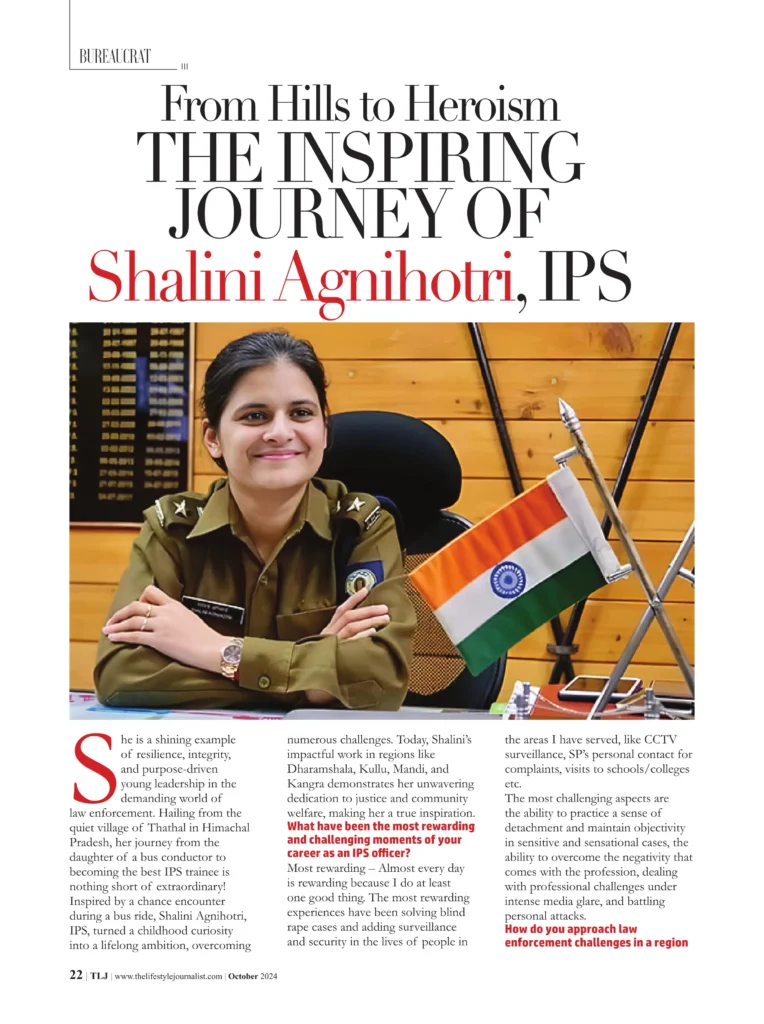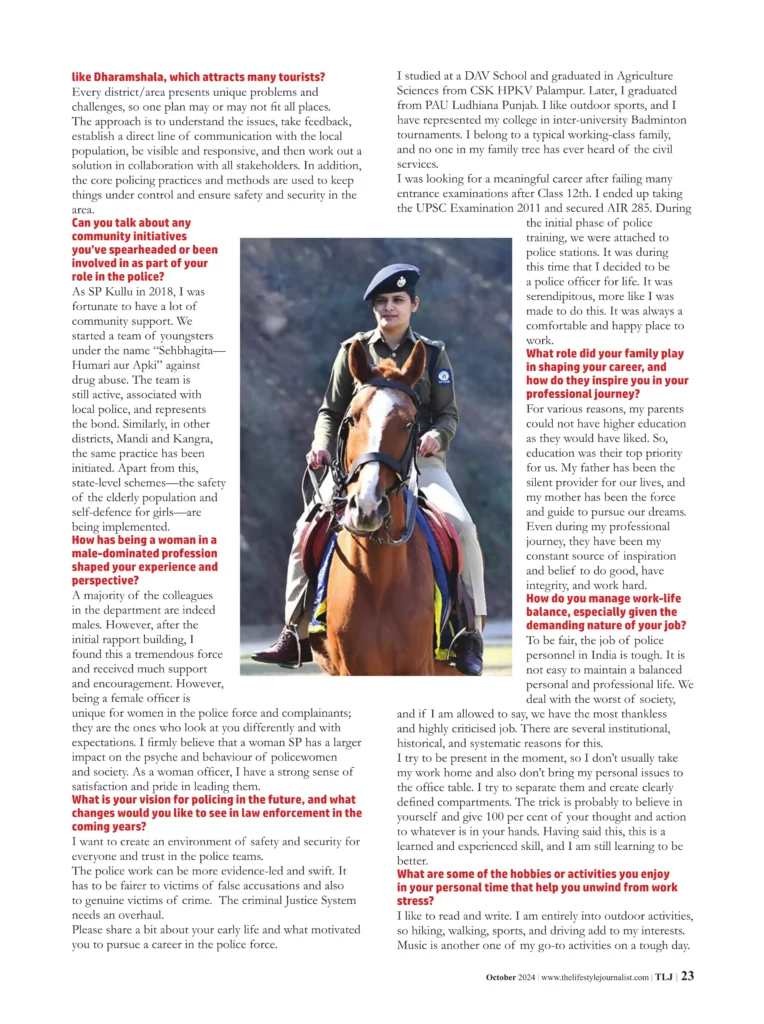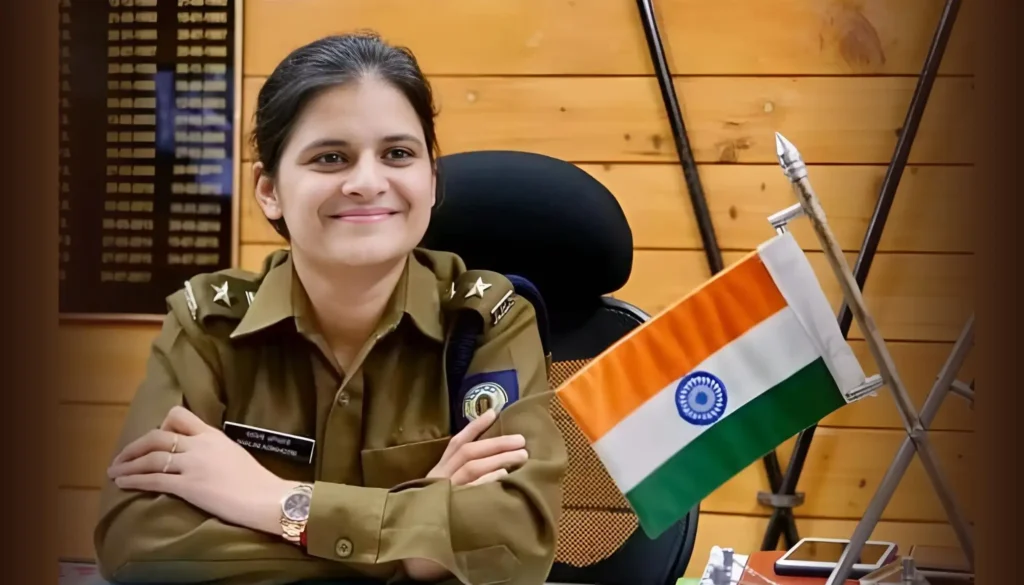She is a shining example of resilience, integrity, and purpose-driven young leadership in the demanding world of law enforcement. Hailing from the quiet village of Thathal in Himachal Pradesh, her journey from the daughter of a bus conductor to becoming the best IPS trainee is nothing short of extraordinary! Inspired by a chance encounter during a bus ride, Shalini Agnihotri, IPS, turned a childhood curiosity into a lifelong ambition, overcoming numerous challenges. Today, Shalini’s impactful work in regions like Dharamshala, Kullu, Mandi, and Kangra demonstrates her unwavering dedication to justice and community welfare, making her a true inspiration.
What have been the most rewarding and challenging moments of your career as an IPS officer?
Most rewarding – Almost every day is rewarding because I do at least one good thing. The most rewarding experiences have been solving blind rape cases and adding surveillance and security in the lives of people in the areas I have served, like CCTV surveillance, SP’s personal contact for complaints, visits to schools/colleges etc. The most challenging aspects are the ability to practice a sense of detachment and maintain objectivity in sensitive and sensational cases, the ability to overcome the negativity that comes with the profession, dealing with professional challenges under intense media glare, and battling personal attacks.
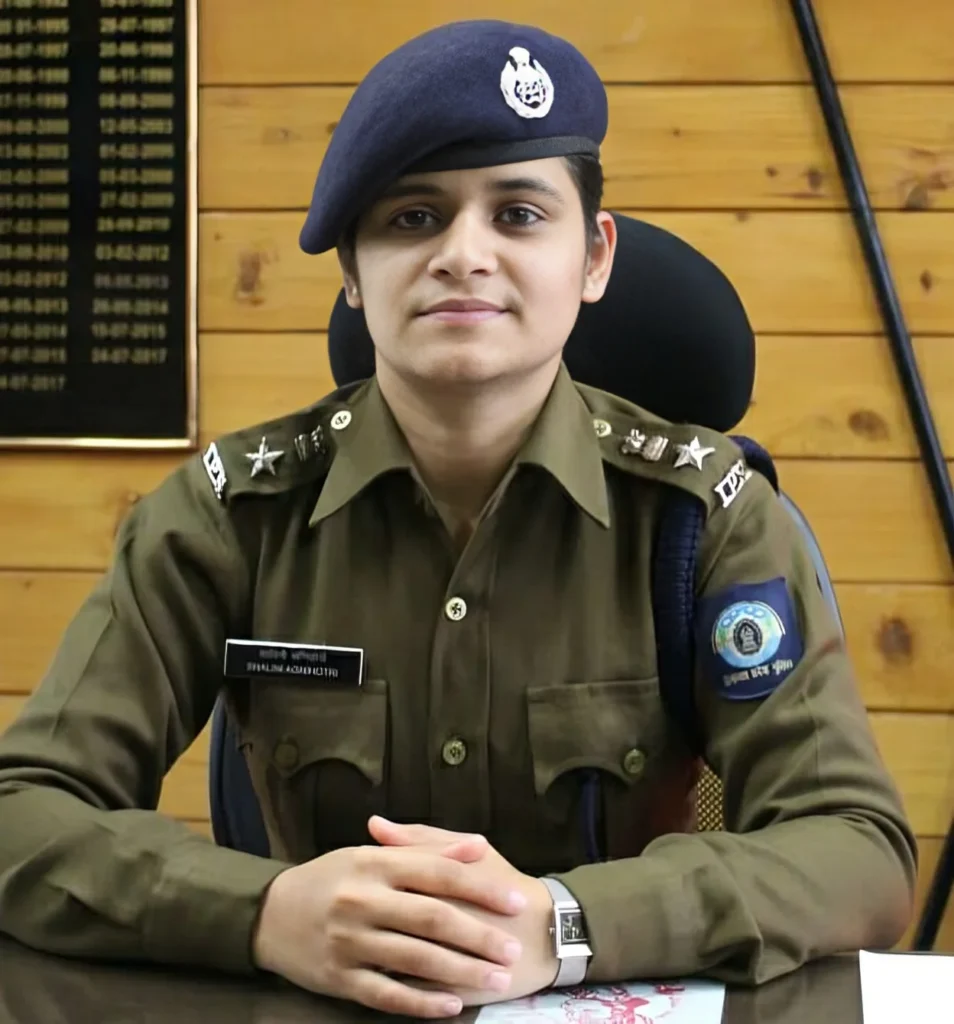
How do you approach law enforcement challenges in a region like Dharamshala, which attracts many tourists?
Every district/area presents unique problems and challenges, so one plan may or may not fit all places. The approach is to understand the issues, take feedback, establish a direct line of communication with the local population, be visible and responsive, and then work out a solution in collaboration with all stakeholders. In addition, the core policing practices and methods are used to keep things under control and ensure safety and security in the area.
Can you talk about any community initiatives you’ve spearheaded or been involved in as part of your role in the police?
As SP Kullu in 2018, I was fortunate to have a lot of community support. We started a team of youngsters under the name “Sehbhagita—Humari aur Apki” against drug abuse. The team is still active, associated with local police, and represents the bond. Similarly, in other districts, Mandi and Kangra, the same practice has been initiated. Apart from this, state-level schemes—the safety of the elderly population and self-defence for girls—are being implemented.
How has being a woman in a male-dominated profession shaped your experience and perspective?
A majority of the colleagues in the department are indeed males. However, after the initial rapport building, I found this a tremendous force and received much support and encouragement. However, being a female officer is unique for women in the police force and complainants; they are the ones who look at you differently and with expectations. I firmly believe that a woman SP has a larger impact on the psyche and behaviour of policewomen and society. As a woman officer, I have a strong sense of satisfaction and pride in leading them.
What is your vision for policing in the future, and what changes would you like to see in law enforcement in the coming years?
I want to create an environment of safety and security for everyone and trust in the police teams. The police work can be more evidence-led and swift. It has to be fairer to victims of false accusations and also to genuine victims of crime. The criminal Justice System needs an overhaul.
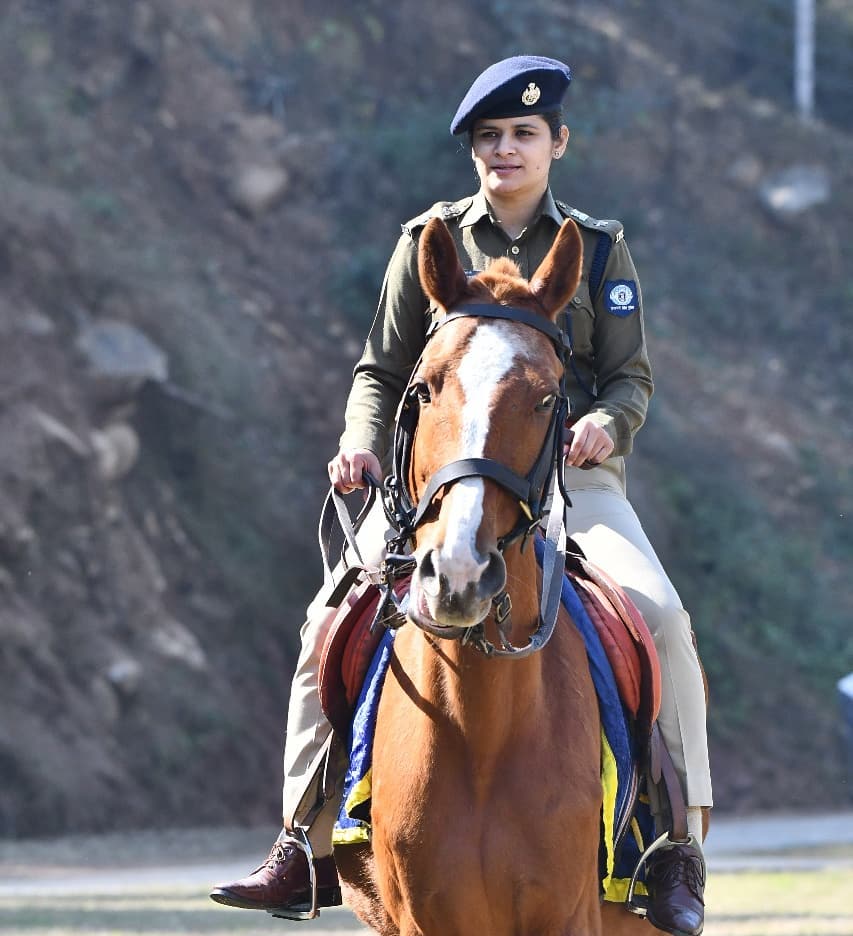
Please share a bit about your early life and what motivated you to pursue a career in the police force.
I studied at a DAV School and graduated in Agriculture Sciences from CSK HPKV Palampur. Later, I graduated from PAU Ludhiana Punjab. I like outdoor sports, and I have represented my college in inter-university Badminton tournaments. I belong to a typical working-class family, and no one in my family tree has ever heard of the civil services.
I was looking for a meaningful career after failing many entrance examinations after Class 12th. I ended up taking the UPSC Examination 2011 and secured AIR 285. During the initial phase of police training, we were attached to police stations. It was during this time that I decided to be a police officer for life. It was serendipitous, more like I was made to do this. It was always a comfortable and happy place to work.
What role did your family play in shaping your career, and how do they inspire you in your professional journey?
For various reasons, my parents could not have higher education as they would have liked. So, education was their top priority for us. My father has been the silent provider for our lives, and my mother has been the force and guide to pursue our dreams. Even during my professional journey, they have been my constant source of inspiration and belief to do good, have integrity, and work hard.
How do you manage work-life balance, especially given the demanding nature of your job?
To be fair, the job of police personnel in India is tough. It is not easy to maintain a balanced personal and professional life. We deal with the worst of society, and if I am allowed to say, we have the most thankless and highly criticised job. There are several institutional, historical, and systematic reasons for this.
I try to be present in the moment, so I don’t usually take my work home and also don’t bring my personal issues to the office table. I try to separate them and create clearly defined compartments. The trick is probably to believe in yourself and give 100 per cent of your thought and action to whatever is in your hands. Having said this, this is a learned and experienced skill, and I am still learning to be better.
What are some of the hobbies or activities you enjoy in your personal time that help you unwind from work stress?
I like to read and write. I am entirely into outdoor activities, so hiking, walking, sports, and driving add to my interests. Music is another one of my go-to activities on a tough day.
